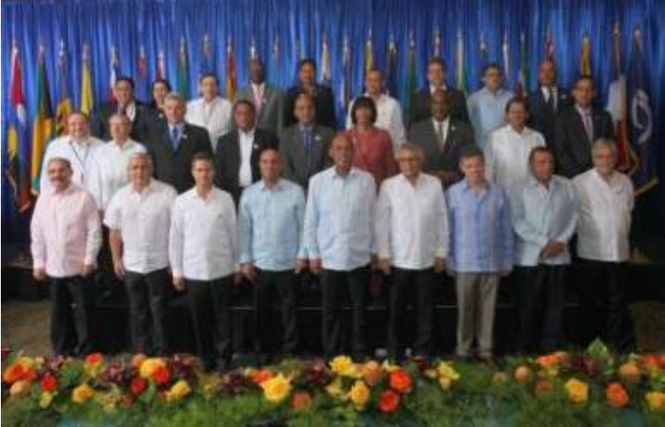
The Caribbean is a highly disaster prone region, enduring a fierce annual hurricane season, tropical storms, flooding and drought, as well as earthquakes. The frequency and intensity of weather-related events in particular are projected to rise due to climate change. Caribbean leaders addressed these challenges and the threat they pose to the region’s development at the 5th Summit of the Heads of State and/or Government of the Association of Caribbean States (ACS), held in Pétion Ville, Haiti from 23 to 26 April.
As set out in the declaration adopted at the close of the Summit, leaders agreed that “the best way to tackle [the region’s vulnerability to natural hazards] is by incorporating comprehensive disaster risk management into all levels of public planning in our countries, including steps for regional and international co-operation.”
ACS heads of state and government also recognised the importance of strong legal frameworks to facilitate the timely and effective delivery of disaster relief. In this regard, they urged the ACS to conduct activities to strengthen disaster management coordination. They also expressed their support for the ACS’s close collaboration with specialised regional organisations such as the Caribbean Disaster Emergency Management Agency (CDEMA) and the Coordination Centre for the Prevention of Natural Disasters in Central America (CEPREDENAC), as well as the United Nations Development Programmes (UNDP), the United Nations Office for Disaster Risk Reduction (UNISDR), the International Federation of Red Cross and Red Crescent Societies (IFRC), among others.
The prominence given to disaster law issues at the Summit and in the declaration builds on the existing commitment of the ACS in this area. Last November, the ACS Special Committee on Disaster Risk Reduction adopted the promotion of IDRL, including the dissemination of the Model Act for the Facilitation and Regulation of International Disaster Relief and Initial Recovery Assistance, as an on-going activity of the ACS.
Disaster law issues were explored in depth during the Summit at a dedicated side event co-hosted by the governments of Haiti and Mexico and the IFRC.
The Pétion-Ville Declaration can be accessed on the ACS website here.